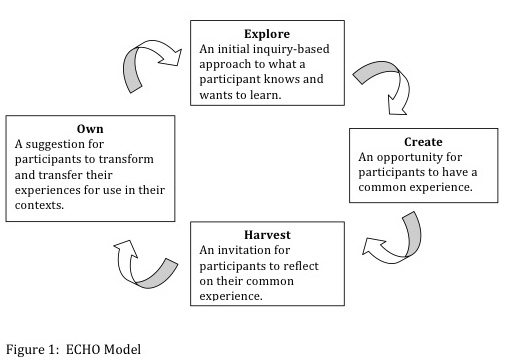For most of us, handouts are a staple of instructional life, but as Teresa Sakraida and Peter Draus (reference below) point out, their “development is often a trial-and-error process.” (p. 326) Like so many other aspects of instruction, we take the construction of handouts for granted, their creation guided largely by intuition.
Read more ›CURRENT ARTICLE • April 09
OTHER RECENT ARTICLES
If you read this blog, you probably don’t need to be convinced of the need to regularly engage and involve students actively in learning. But I’m also pretty certain you have colleagues who still lecture almost exclusively and who to varying degree express concerns about active learning. I thought you might find this list of common concerns and responses to them useful.
Read More ›Survey of College Faculty Reveals Increases in Student-Centered Teaching and Evaluation Methods
Helping students develop critical-thinking skills and discipline-specific knowledge remain at the forefront of faculty goals for undergraduate education, with 99.6 percent of faculty indicating that critical-thinking skills are "very important" or "essential" and 95.1 percent saying the same of discipline-specific knowledge. Other top goals include helping students to evaluate the quality and reliability of information (97.2 percent) and promoting the ability to write more effectively (96.4 percent).
Read More ›Which of the factors listed below would you predict students would say are the most important when they are deciding which courses to take?
Read More ›I’ve been reading a book on engineering education. Actually it’s a call to redesign engineering education, and it’s based on an impressive study that involved visits to 11 mechanical and electrical engineering program at six very diverse institutions, a review of about 100 self-study reports from 40 different school (prepared for the accreditation process), as well as interviews with student and faculty and classroom observations. The call for reform is based on a mountain of data.
Read More ›On one of my recent road trips, I had a stimulating conversation with two colleagues during which we discussed group work and the challenge of designing good activities for groups. Although the problems that emerge when students work in groups cannot be completely prevented by well-designed activities, they can certainly be made to occur less frequently or to lesser degrees. Let me offer some examples.
Read More ›I was on the way from the Portland airport to my Dad’s place, being driven by a childhood friend who now runs a pick up and delivery business. We left the four lane and followed winding country roads on our way to Forest Grove, a small town at the base of the coast range in Oregon. We came to an intersection. There wasn’t a stop sign or a stop light but there in the middle of open fields was a beautifully landscaped round-about, two lanes wide. Down the road another half mile was another. Not the place you’d ever expect to find round-abouts. “Excuse me,” my friend said, “but that’s what people with education do.”
Read More ›We do tend to get carried away with lofty academic definitions—they are precise and detailed—but sometimes simple captures the essence in a much more compelling way. I’ve read all sorts of definitions for problem solving, most sounding something like this: “any goal-directed sequence of cognitive operations.” Fine, but put that definition alongside this one: “what you do when you don’t know what to do.” [Both of these definitions appear in the article referenced below and the functional definition is attributed to another source.]
Read More ›As educators we hear and heed Peter McLaren’s warning, “You can't teach people anything … You have to create a context in which they can analyze themselves and their social formations and lives.” 1 We believe the creation of this context must be our aim as educators, and this context must be balanced between theory and practice. In our pursuit to strike this balance, we believe that experiential education has the potential to assist our fellow educators in transforming their pedagogical practices to more deeply engage their students and improve learning outcomes.
Read More ›Sometimes when words get bandied about, their meanings become less precise and that loss of meaning is overlooked because we all think we know what the term means. Case in point: empower, as in empowered learners or empowering instructors. Some faculty object to the verb empower because they think it means students taking charge and making learning decisions best left to teachers.
Read More ›





